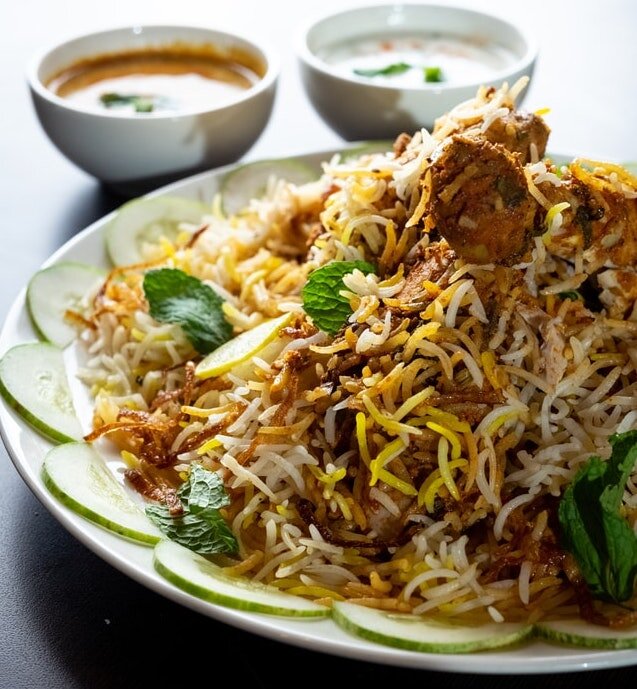Exploring south Asian culture, heritage and history during the second lockdown
British south Asians have a rich and diverse ancestral, cultural heritage full of delicious tropical food, gorgeous colourful clothing, beautiful and vibrant dance, music and art, and powerful and enlightening histories. Unfortunately, for many second and third generation south Asian migrants in the UK, the dual identification as British and south Asian, a physical and therefore mental distance with their ancestral homelands and the loss of important stories due to generational trauma from colonial rule and oppression, and migration, means there is often a missing connection with their culture and heritage. But it’s never too late to connect with them.
Although the second lockdown poses the same difficulties as the first with the addition of colder weather, shorter days and fears of seasonal illnesses, also like the first, it can be an opportunity to slow down and indulge in activities our typically busy lives might not otherwise allow. Now that we are more experienced with lockdowns, we can be more purposeful in what we do this time. It can be a chance to learn more about, and connect with, our ancestral culture, heritage and history and in doing so, learn more about our families and maybe even ourselves. This process is a journey of-course, so only you can set the course but if you’re scratching your head with where and how to begin then let these suggestions provide you inspiration.
Photo by Shreyak Singh on Unsplash
Learn to cook your ethnic food
Food and learning to cook can be an indulgent luxury; seducing the senses, relaxing the mind, nourishing the body and providing self-care. By taking the time to learn recipes native to your culture, you not only open yourself up to a world of deliciousness but also the awe-inspiring health benefits of many culinary traditions, like the addition of turmeric to food. It will expand your repertoire, give you a new trick for dinner parties (whenever we can have them again) and perhaps most importantly a sense of gastronomic pride.
Photo by Annika Gordon on Unsplash
Learn your mother tongue
Language learning app Duolingo saw its downloads and number of users skyrocket in spring this year: people learning a second language and therefore increased cultural integration were a happy side effect of the first lockdown. This time round, it’s worth considering improving your fluency in your mother tongue. Language itself is a story. When we learn new words we invariably learn their meaning, connotations, slang versions and origin story; in essence, their etymology. And in this way, we learn the story of a people, their history, their movements and their assimilation with others. It may also enable you to better communicate with your elders and their beaming smile in response will make it all worthwhile.
Learn a cultural dance
Exercise releases endorphins and there’s no doubt that we could all do with as many endorphin-releasing activities as possible right now. But if you’re not feeling at-home cardio or gym floor exercises, or freezing jogs around the block then embrace dance. The joyous movement is likely to bring you more happiness anyway. Find a dance within your culture that you would enjoy, learn about it and then practice it! Dancing for yourself is empowering and doing it in front of a mirror with no-one watching is liberating.
Photo by Arindam Deb on Unsplash
Dress up in your cultural outfit
If there’s ever a time to play dress-up, its when you’re stuck at home. Except this time take it step further and indulge in dressing up in an outfit from your culture. South Asian clothing is typically bright and colourful and can be adorned with embroidery and sequences, which will make the experience all the more fun. Some outfits, like a sari for example, can be worn in multiple ways and learning how to wear the 30 feet long material will likely bring you a couple of hours of joyous experimentation and laughs. Indulge yourself and do your hair and make-up too.
Photo by Christin Hume on Unsplash
Research your cultural history
If you were fed stories as a child, it’s easy to dismiss the idea and assume you know all there is to know, but south Asian cultures are bountiful, rich and diverse and there is always something new to learn. Also, the more we learn about our culture, the more we understand both the positive traditions practiced today and where harmful and damaging taboos and stigmas that need to be combated, come from.
Photo by British Library on Unsplash
Educate yourself on your ancestral home’s history with colonialism
Most, if not all south Asian countries have faced colonial oppression. Unfortunately very little of the extent and continuing impact of this is known in western countries like the UK, because they are not in the curriculum and are only just entering mainstream discourse. But many social justice movements today seek to rectify the subconscious and systemic biases, micro and outright-aggressions, social and economic inequalities and negative internalisations that were first perpetuated by oppressive colonial rule. By educating ourselves about the past, we can begin to understand other’s struggles today to make a better world tomorrow.
Photo by Ashwini Chaudhary on Unsplash
Interview your family members about your ancestors
Our elders carry with them a lifetime’s wealth of knowledge but it can be hard to appreciate this when we’re young. By engaging with them not only will you create memories that you will cherish for the rest of your life but you will be pleasantly surprised by what you learn about them and your family tree. Maybe your ancestors were freedom fighters, entrepreneurs, trailblazers, politicians or simply normal people who were beloved for their kindness, humour and generosity of spirit. Whatever you learn will likely give you a greater understanding and appreciation for your family and your life today. And if you document it, you may even be leaving something for future generations.
Photo by Adli Wahid on Unsplash
Find out more about your ancestral faith
However you identify: as a person of faith (whichever faith), an antagonist or an atheist, educating yourself about other religions is important. In particular, learning about your ancestral faith can be enlightening as the way different communities practice a single religion can be unique, as can their struggles in practicing that faith. As with learning anything about your ancestors, this can help inform your understanding of your place in the world and your worldview. Indeed examining the faith’s central tenants, roots, scriptural message and key figures may give you pause for thought, hope and inspiration; beautiful aspirations for anyone in the second lockdown.
Photo by Rahul Shah from Pexels
Engage with content from your culture
From books and podcasts to movies and TV shows there is so much to choose from and most of it is in English (if you’re worried about not being able to understand it). Even though you’ll be stuck at home, it will open your mind to a whole new world of perspectives, fresh and original stories and new and interesting people and characters. In fact you might just find that you become so absorbed, that you don’t even want to leave the house.








